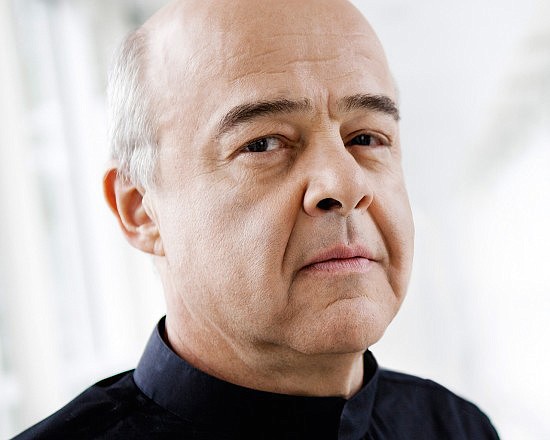- January 22, 2025
-
-
Loading

The stars were shining brightly this past Sunday afternoon when Anu Tali led the Sarasota Orchestra in a blockbuster of an all-Russian program that was enough to outshine Sirius, seriously. Shostakovich, Prokofiev and Mussorgsky are great Eastern stars themselves. Put them together with Tali, prize-winning pianist Alexander Toradze and the dazzling musicians of the Sarasota Orchestra in a program seemingly designed to show off the ensemble’s stellar players, and you have enough dazzle to light up the musical skies.
In Shostakovich’s suite from his film score, “The Gadfly,” the warmth and silvery sound of the strings, especially in the gorgeous, well-known "Romance," with concertmaster Daniel Jordan’s beautiful solo, was moving and exhilarating. Sounding like a Russian John Williams (who may well have emulated Shostakovich in some of his works), “The Gadfly” uses colors from muted to scorching, with the militaristic sound of Russian soldiers’ boots tramping across the Steppes like sure-footed avengers. Yet Tali brought out the sensitivity of the composer’s romantic side, too, making this a beautifully sculpted performance.
Toradze, who’s known Tali for many years from their studies and work in St. Petersburg (Russia) but hasn’t, until this weekend, performed with her, is an all-body, muscular pianist of the Russian Bear tradition. Yet he never bangs or uses his strength and emotional zest to show off. His performance Sunday of the exuberant Prokofiev Piano Concerto No. 3 was thrilling. Tali and the Orchestra supported his vigorous performance, while never underestimating the composer’s penchant for sudden mood, color and tempo changes, and knitted the transitions together seamlessly. This is a brash, bold work that takes strength from everyone concerned; a blockbuster that’s both exhausting and exhilarating, and the fact that Toradze has recorded it and Prokofiev’s other four piano concertos, with no one less than Valery Gergiev, made the piece feel very much at home in all hands.
One of the interesting things about this particular concerto is its resemblance to Poulenc’s music for orchestra and piano(s). Or, maybe it’s the other way around. But no matter how you look at it or hear it, Prokofiev and Poulenc share a certain insouciance, a humor that’s very, very French. Poulenc’s is more tongue-in-cheek, while Prokofiev’s is mocking and sardonic. But the wit is there, and Toradze’s mastery of the style combined with Tali’s musical understanding and the Orchestra’s prowess made this an extraordinary performance.
Toradze, whom audience and orchestra members alike deservedly cheered, gave us a gift of two brief but impeccably played encores by Prokofiev: an excerpt from “Vision Fugitive” (which he called “The Clock” because of its ticking qualities) and the wild finale of the composer’s Sonata No. 7. He immediately handed the flowers brought to him onstage to violinist Jennifer Best Takeda, who looked both pleased and nonplussed.
The concert concluded with a star-studded portrait of Mussorgsky’s “Pictures at an Exhibition.” Originally written for piano, it was Ravel’s orchestration that brought it into the popular spotlight. Interestingly, Tali decided to go back to the original piano score and, in doing so, kept Ravel’s insightful colors but also dug deeply into the music to make this performance purer and more transparent than many we’ve heard in the past.
One of the many stars of this “Pictures” was a gigantic bell — weighing in at a hefty 500 pounds — and brought to Sarasota on loan from the Dallas Symphony, specially for this resounding concert. And resound it did. One musician joked she thought it was the Liberty Bell without the crack, but, when principal percussionist George Nickson struck it with his mighty clapper, we thought heaven’s gates had opened. And our ears are still ringing.
Yellow flowers were brought to conductor Anu Tali, who, with a twinkle in her eye, added her bouquet, again, to Takeda’s growing collection. But, there was more. Tali gave us a Russian encore, “Winter Roads,” from Georgy Sviridov’s “The Snowstorm.” It swirled like a scene from “Anna Karenina” but ended happily with an entrancing flourish on the celeste, which the Orchestra’s pianist, Jonathan Spivey, deftly played.